In this Working Paper, Kathy Win discuses the role of CSOs, faith-based groups and ethnic armed organisations in harm reduction programmes in Northern Shan State.
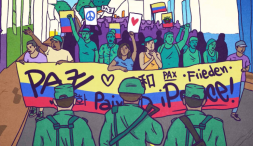
Reflecting on ‘impact’ in artist-academic collaborations in times of conflict
This article in the Journal of Humanitarian Affairs reflects on the challenges and opportunities of collaboration between artists and academics in making the animation ‘Colombia’s Broken Peace’.

Precarious lives, precarious treatments: Making drug treatment work in Northern Myanmar
This article explores how drug dependency treatment is made to work in efforts to sustain everyday livelihoods.
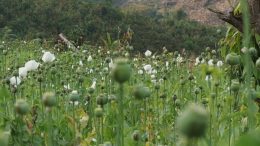
Non-medical pathways away from harmful drug use in Kachin state, Myanmar
This paper discusses intersectional approaches to understanding pathways out of harmful drug use in Kachin state, Myanmar, through telling the life story of a well-known advocate for better treatment of drug users.

We eradicated coca: now what?
This digital report highlights the personal experiences of some of Colombia’s “substitution farmers” who eradicated their illicit coca crops as part of the Peace Agreement’s substitution programme, but are still waiting for the state to deliver what was promised to them.

Voices from the borderlands 2022
Our flagship report, based on a collection of life stories that offer insights into how illicit drugs, violence and conflict, poverty and development, and insecurity and resilience are entangled in the everyday lives of people in the borderlands.
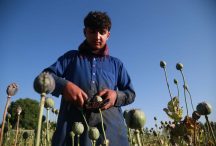
Agribusiness meets alternative development: Lessons for Afghanistan’s licit and illicit commodity markets
This AREU research paper is a case study of CARD-F, a nine-year aid-funded rural development programme which began with counternarcotic goals.
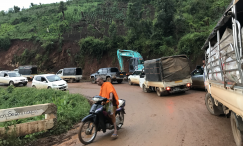
Spatial borderland biography: Myanmar
Spatial data on Myanmar borderlands, including administrative boundaries, transport and road networks, agriculture and hydrology, available via UK Data Service.
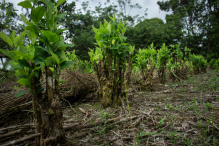
Spatial borderland biography: Colombia
Spatial data on Colombian borderlands, including borders, narcotics, infrastructure and agriculture, available via UK Data Service.
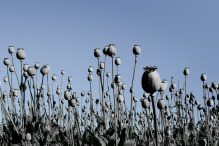
Spatial borderland biography: Afghanistan
Spatial data on four Afghan borderlands, including borders, opium production, drug routes, infrastructure and agriculture, available via UK Data Service.

Myanmar datasets
Four datasets of interviews, media resources and life histories illicit drugs and youth in Myanmar, available via the UK Data Service.
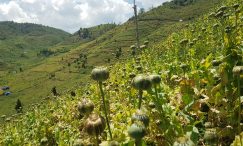
Brokered rule: Militias, drugs and borderland governance in the Myanmar-China borderlands
This Journal of Contemporary Asia article discusses how the illegal drug trade has become integral to systems of brokered rule in northern Shan State, Myanmar.
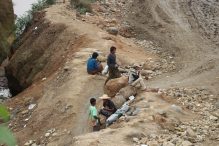
Critique of everyday narco-capitalism
This Third World Quarterly article discusses how capitalism alters life at the nexus of drug production, trade and consumption in the borderlands of Afghanistan, Colombia and Myanmar.

Illicit economies and political opportunity: The case of Colombian paramilitaries (1982-2007)
This Journal of Political Power article discusses four mechanisms through which criminal involvement politicised paramilitaries.

‘Peace with hunger and bullets is very difficult’: PNIS implementation monitoring report
This Working Paper presents findings from the second survey of participants in Colombia’s crop substitution progrmme, carried out in Tumaco in 2021

Mangling life trajectories: institutionalized calamity and illegal peasants in Colombia
This Third World Quarterly article discusses the institutionalization of calamity – in the form of fumigation and exposure to lethal violence – and its consequences over coca peasants and workers in Colombia.

Modes of governance and the everyday lives of illicit drug producers in Afghanistan
This Third World Quarterly article considers the interaction between different governance arrangements and the everyday life of people involved in the drug economy in Nimroz and Nangarhar.

Drugs & (dis)order Policy Lab: An experiment in sustained critical engagement between researchers and policymakers
This working paper shares reflections from an ongoing conversation between researchers and policy stakeholders on drugs, development and peacebuilding policy.

Colombian state reactions to peace: The legacies of the narcoguerrilla-narcoterrorist discourses
This Journal of Political Power article analyses the effect of the Colombian peace process on the discourse of ‘narco-guerillas’.

‘Everything peasants do is illegal’: Colombian coca growers’ everyday experiences of law enforcement and its impacts on state legitimacy
This Third World Quarterly article draws on coca farmer accounts to argue that if the state continues to wage war against the peasantry, it will hardly achieve effective governance of the coca frontier.

